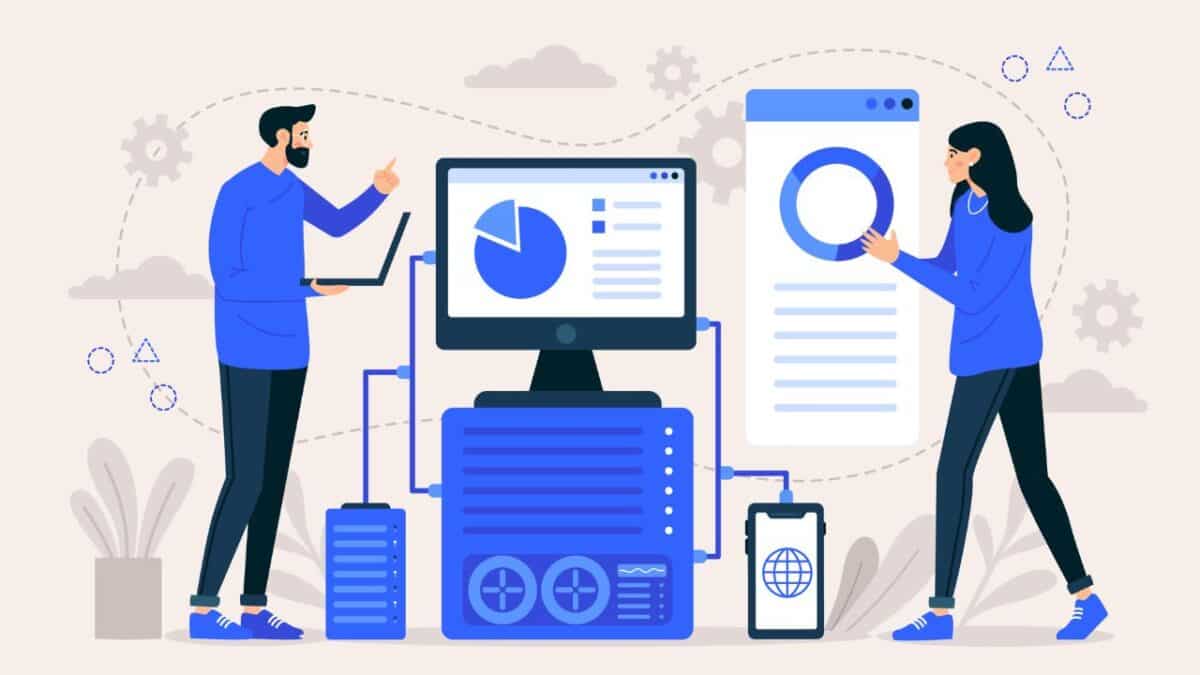If you are running a start-up or small business, you know that hiring, training, and retaining employees can be tough. Without technology to automate repetitive human resource tasks, it’s quite impossible to manage people and responsibilities on time. Things can be even more difficult if your HR team is not performing to its maximum potential. That is where HR software for a small business works wonders!
How can HR software be of help in such a scenario? HR software solutions are tools that simplify various HR tasks, from recruiting and payroll to performance management and tracking attendance.
With good HR software, businesses have better access to data that will give them insights to make well-informed decisions in the company. HR solutions can also create a better working environment for their valued employees, which has a significant impact on company culture.
Identify Your Business Needs
When deciding which HR software to choose, managers often reflect on the company’s needs first. Doing so can help them understand the current working environment and issues that they’re facing. To choose the most appropriate HR solution, businesses have to review their present-day management systems.
How many employees can the current software handle? What are the advantages and disadvantages of using it? What are some of the best HR software for small businesses in 2022?
List the top providers, features, and everything you want to change in your current system. Whether you need a better tax assistance solution or an automated payroll system, the key here is to simply get a clear overview of why you need the HR software.
Compare Different HR Software Solutions
HR software solutions are growing in numbers and they’re taking the business world by storm. According to a recent report, the global HR software market size is currently at $15.59 billion and is projected to reach $33.57 by 2028.
With HR software becoming more and more popular, it won’t be surprising if it soon becomes a must-have tool in modern offices. This is good because it means businesses are actively thinking of ways to improve the employee experience. Many CEOs and leaders now understand the importance of maintaining a great work culture.
That being said, there are many types of HR solutions available today. Here’s a quick overview of each and how they differ from each other.
Three Basic Types of HR Software
HR software unifies all employee data, from attendance to performance, to create appropriate solutions for your business. Today, modern HR software falls into three main categories: benefits and payroll, onboarding, and hiring. We can consider the following few examples as different HR solutions:
Human Resources Information Systems (HRIS): HR solutions that work primarily to manage and process employee data and company policies
Payroll Systems: HR software that automates complex payroll processes and can track timesheet data and pay employees on autopilot
Applicant Tracking Systems (ATS): Programs that not only help businesses find, track, and manage candidates but also allow you to post on different job sites such as Indeed, LinkedIn, and Glassdoor
Choose a Scalable and Adaptable HR Software
If you want a new HR software, you’ll want something better than your previous software. It’s not enough to get an HR software that’s effective, you should strive to choose a software that is scalable and adaptable.
Scalability is defined as the software’s ability to handle increasing amounts of data and tasks. In other words, a scalable software is growth-ready. Adaptability is another important feature to look for in an HR software.
Adaptable HR software solves myriad problems with specialized tools. It can provide companies and employees more flexibility in terms of workload and scheduling.
Rather than changing software and causing disruption in operations each time you need to undergo extensive operational changes, consider an adaptable HR software with full-fledged solutions already installed.
With adaptable HR software, you can create multiple work policies, reduce the rigidity of work rules, and provide a suitable environment for your employees no matter what phase you are in your business.
Consider an Easy-to-Use Software
HR software is built to be intuitive and easy to use. As the primary goal is to improve workflow and business operations, it makes sense that an HR software should be designed with user-friendliness in mind.
However, not all HR software are equal. Some are more intelligent and functional, while others—not so much. How will you know if the software is user-friendly and good for your team?
Here are some important points to look for:
- The software doesn’t need any specialized knowledge or training to run.
- It can be operated from any device or platform.
- Using the software saves time and improves everyone’s productivity.
- It doesn’t add stress and frustration to your current work.
- There’s no need for additional modifications or installations.
- It can work seamlessly with other applications.
Take Inputs from Your Team
Your team’s insights are a goldmine of information when it comes to what they need in HR. Managers should derive feedback from their team before even thinking of changing any software at work. If you want to have a successful purchase, involve the people who will primarily use the tool in the decision-making process.
Usually, managers conduct a brainstorming session months before implementing the software. The manager asks everyone about their daily challenges at work as well as current problems in workload.
After the meeting, companies should have a research and testing team who will choose the top-three software. Both these teams will then work together to find the right software to use in a given timeline. The more time you spend researching the best option, the better chances you have of succeeding.
Make Your Decision
The HR management software you choose will have a huge impact on your business. This means that a wrong choice can affect not just the workflow but also the growth of the business. Surely, you don’t want a stagnated company where each of your employees is aching to leave.
Before you make your final decision and hit the purchase button, it helps a lot if you can create a checklist of the features you need along with your budget for the software.
Improve Your Workplace with the Right HR Software
No matter how much you love your business, just passion and hard work aren’t enough. You need to strengthen the foundation of your empire. You need to invest in your company culture. And for company culture to exist, you have to focus on your employee’s satisfaction.
Choosing the right HR software is the key to improving employee experience. The software you choose will not just free your employees from time-consuming and resource-draining responsibilities, it will also enhance your business operations and increase positivity in your workplace culture.
Want to find out how Engagedly can help you streamline and smoothen the HR process for your business? Book a live demo with us.
Request A Demo
Author
Srikant Chellappa
CEO & Co-Founder of Engagedly
Srikant Chellappa is the Co-Founder and CEO at Engagedly and is a passionate entrepreneur and people leader. He is an author, producer/director of 6 feature films, a music album with his band Manchester Underground, and is the host of The People Strategy Leaders Podcast.






